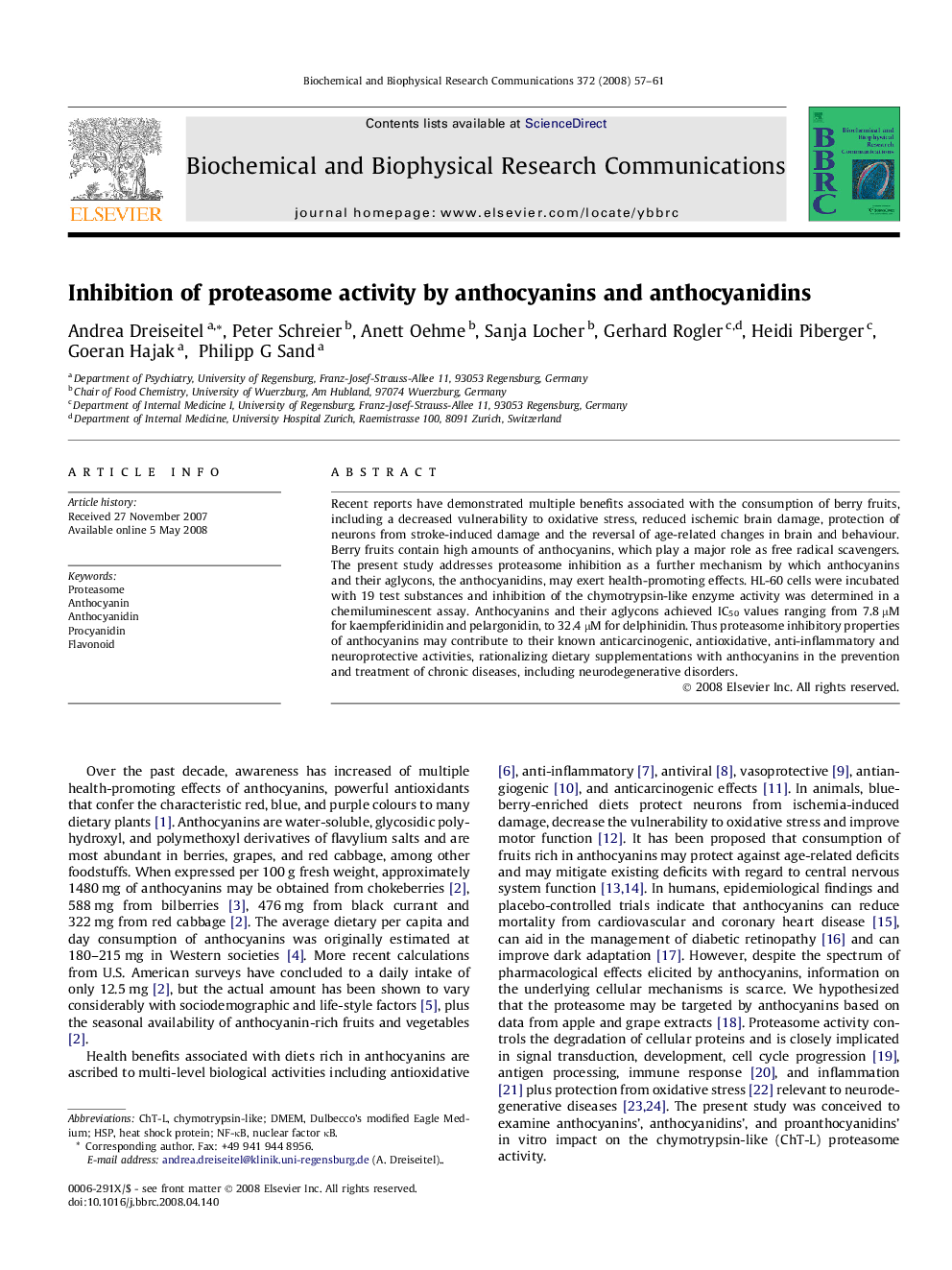| Article ID | Journal | Published Year | Pages | File Type |
|---|---|---|---|---|
| 1935505 | Biochemical and Biophysical Research Communications | 2008 | 5 Pages |
Recent reports have demonstrated multiple benefits associated with the consumption of berry fruits, including a decreased vulnerability to oxidative stress, reduced ischemic brain damage, protection of neurons from stroke-induced damage and the reversal of age-related changes in brain and behaviour. Berry fruits contain high amounts of anthocyanins, which play a major role as free radical scavengers. The present study addresses proteasome inhibition as a further mechanism by which anthocyanins and their aglycons, the anthocyanidins, may exert health-promoting effects. HL-60 cells were incubated with 19 test substances and inhibition of the chymotrypsin-like enzyme activity was determined in a chemiluminescent assay. Anthocyanins and their aglycons achieved IC50 values ranging from 7.8 μM for kaempferidinidin and pelargonidin, to 32.4 μM for delphinidin. Thus proteasome inhibitory properties of anthocyanins may contribute to their known anticarcinogenic, antioxidative, anti-inflammatory and neuroprotective activities, rationalizing dietary supplementations with anthocyanins in the prevention and treatment of chronic diseases, including neurodegenerative disorders.
